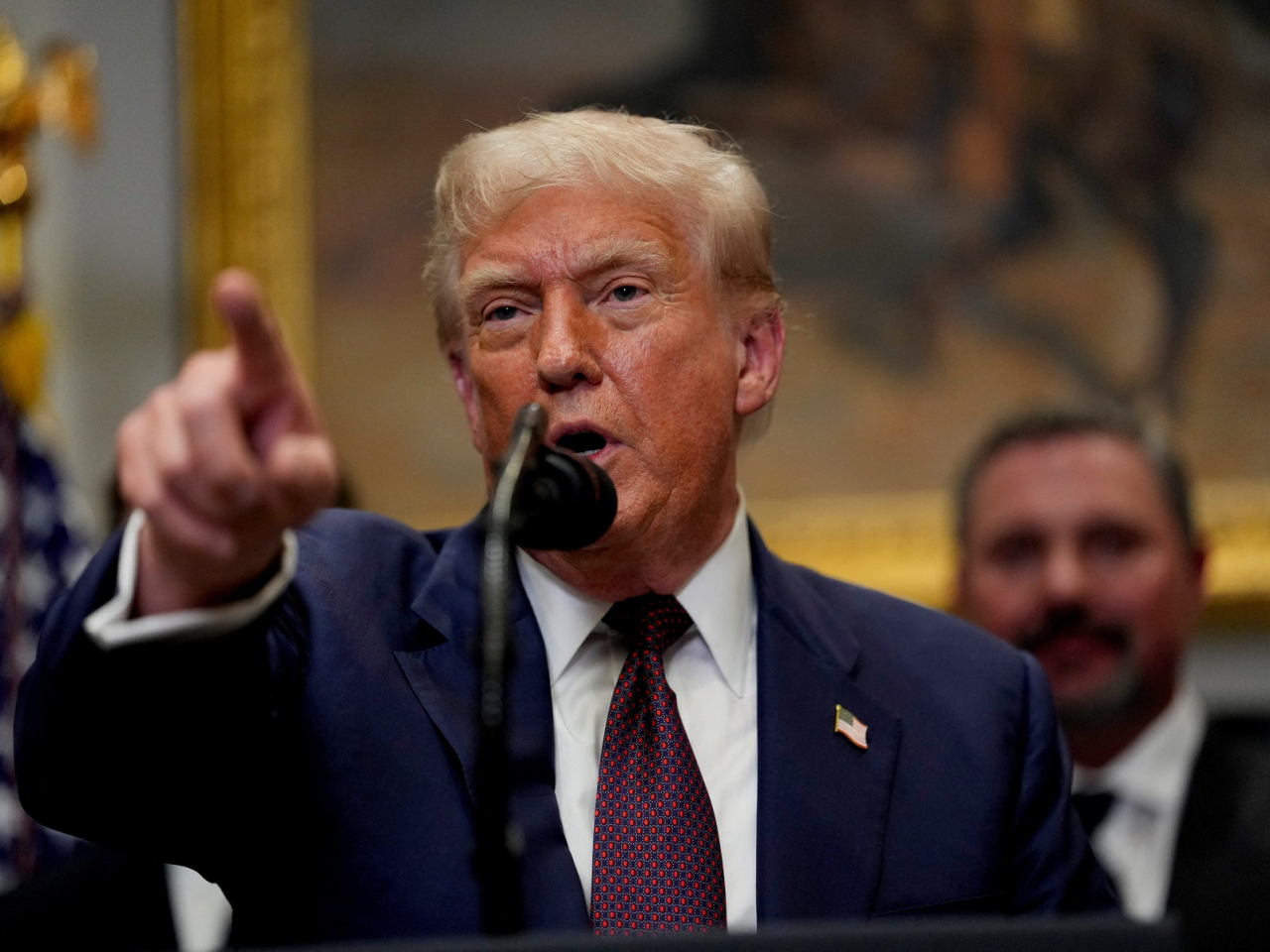US President Donald Trump has signed an order imposing higher tariffs on dozens of trading partners in his latest bid to reshape global trade in favour of US businesses, with duties to take effect in seven days.
The order set out tariffs on US imports that ranged as high as 41 percent on Syria. Some of them had reached tariff-reducing deals and some had no opportunity to negotiate with the Trump administration.
The order said that goods from all other countries not listed in an annex would be subject to a 10 percent US tariff rate.
Trump's order said that some trading partners, "despite having engaged in negotiations, have offered terms that, in my judgement, do not sufficiently address imbalances in our trading relationship or have failed to align sufficiently with the United States on economic and national-security matters."
Trump issued a separate order for Canada that raises the rate on Canadian goods subject to fentanyl-related tariffs to 35 percent from 25 percent previously, saying Canada had "failed to cooperate" in curbing fentanyl flows into the US.
The higher tariffs on Canadian goods contrasted sharply with Trump's decision to grant Mexico a 90-day reprieve from higher tariffs of 30 percent on many goods to provide more time to negotiate a broader trade pact.
A US official told reporters that more trade deals were yet to be announced as Trump's higher "reciprocal" tariff rates were set to take effect.
"We have some deals," the official said. "And I don't want to get ahead of the President of the United States in announcing those deals."
The executive order caps a flurry of efforts to reach trade pacts with the Trump administration ahead of the president's initial Friday deadline.
So far, Washington had announced pacts pacts with Britain, Vietnam, Japan, Indonesia, the Philippines, South Korea and the European Union.
But details of those agreements have remained vague.
US Treasury Secretary Scott Bessent said earlier that the United States believes it has the makings of a trade deal with China, but it is "not 100 percent done," and still needs Trump's approval.
China is facing an August 12 deadline to reach a durable tariff agreement with Trump's administration, after Beijing and Washington reached preliminary deals in May and June to end escalating tit-for-tat tariffs and a cut-off of rare earth minerals (Agencies)
____________________________
Last updated: 2025-08-01 HKT 08:39





